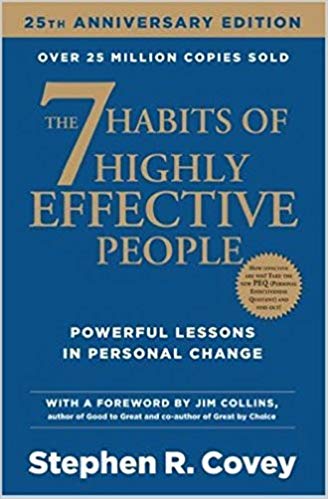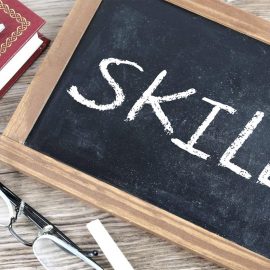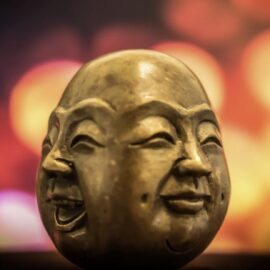

This article is an excerpt from the Shortform summary of "The 7 Habits of Highly Effective People" by Stephen Covey. Shortform has the world's best summaries of books you should be reading.
Like this article? Sign up for a free trial here .
Proactive people focus their time and energy on their Circle of Influence. Why waste your efforts spinning your wheels about concerns you can’t impact?
Your Circle of Influence are all the things that you have the power to influence or control. On the other hand, your circle of concern if the things you worry about and can’t control. But by focusing on your Circle of Influence, you can create positive actions and reactions, and apply your values set in everyday life.
What is the Circle of Influence?
As we mentioned above, Stephen Covey’s Circle of Influence is about recognizing and acting upon things you can control. Acting mainly in your Circle of Influence is a proactive choice. On the other hand, if you are reactive, you focus on your Circle of Concern. You worry about the housing market, or the fate of your sick aunt, or your irritating coworker. Spending your mental and emotional energy on things that are outside of your Circle of Influence reinforces feelings of victimization — you are allowing things that are out of your control to determine your actions and emotions.
Sometimes a person’s status, wealth, job title, or relationships grant her more power and influence than the average person, expanding her Circle of Influence to be larger than her Circle of Concern. Having the broad ability to make a difference but not having concern enough to do so is selfish and another form of being reactive; you’re not taking responsibility for using your influence productively.
Every problem we encounter falls into one of three categories:
- Direct control: These are problems that are directly related to your actions
- Indirect control: These are problems that are related to other people’s actions
- No control: These are problems that you have no ability to impact, including certain circumstances (e.g. the weather) and the past
Proactive people recognize they can choose their response to each type of problem, and place them all in their Circle of Influence, Covey says.
- For direct control problems, a proactive person works on her habits and behaviors. Habits 1-3 address these kinds of problems.
- For indirect control problems, a proactive person works on her interactions with other people to expand her influence on others and their actions. Habits 4-6 and the “Public Victories” they emphasize address these kinds of problems.
- For no control problems, a proactive person accepts the unchangeable reality and makes peace with it, never empowering the problem to dictate her emotional or mental well-being.
How Can I Apply my Circle of Influence?
Stephen Covey’s Circle of Influence is meant to be applied to your everyday life to help you make proactive choices and build effective habits.
Making Mistakes
While your actions lie within your Circle of Influence, the consequences to your actions are beyond your control. You can’t choose your consequences; at best, you can anticipate them.
Think of an action and its consequence as opposite ends of the same stick: When you pick up one end, the other comes with it. You can’t carry out the action without the consequence following.
By and large, when you act according to your principles, you’ll experience positive consequences. And when you break with these principles, you’ll face the negative consequences.
Proactive people acknowledge their mistakes and learn from them. It’s best to do this as quickly as possible, because the longer you go without learning from a mistake, the more likely you are to repeat it. The Circle of Influence in Covey’s book explains that acting within the Circle can help minimize the damage of bad decisions.
In contrast, reactive people try to justify, rationalize, or minimize their mistakes. Doing any of these is an additional mistake; when you try to cover up a mistake, you’re empowering it by putting even more energy toward it. Think of it this way: If a poisonous snake bites you, chasing the snake will only cause the poison to course through your system more quickly. The best response for your own well-being is to expel the poison as quickly as possible.
Making Commitments
Stephen Covey’s Circle of Influence says that the power to make and commitments to yourself and others is always your own. Your ability to make and keep those commitments reveals how proactive you are.
When you recognize something within yourself that could be changed or improved, you have the power to determine how to achieve that change by making a commitment or setting a goal. Every time you set a goal — no matter how small — and take the steps to achieve it, you empower yourself to make bigger and more substantial changes in your life. By doing this, you put yourself in charge of your life.
Challenge yourself to 30 days of proactivity: For one month, focus deliberately on your Circle of Influence. Make small commitments and goals — whether they are personal, at work, in your family, or in your marriage or relationships — and work to achieve them. When you make a mistake, acknowledge it, correct it if you can, and learn from it.
Remember the foundations of proactivity and approach things from the inside-out. Resist blaming circumstances or other people. Pay attention to the language you use whether it’s reinforcing a reactive or proactive mindset.
Effective Communication
Acting within your Circle of Influence — understanding the other person and expressing yourself. Those actions, in turn, can help you effectively influence other people, which can influence situations that impact you, which expands your Circle of Influence.
Communication is a critical aspect of productive interpersonal relationships. When truly effective interdependent people communicate, they first try to understand the other person’s perspective before expressing their own.
On a larger scale, this principle holds true in many professions.
- A successful salesperson strives to understand her client’s needs and concerns in order to offer the appropriate product or service. This creates loyal, long-term customers.
- A lawyer must thoroughly understand her client’s situation, the applicable laws, and the opposing argument to prepare a solid case.
- Product designers need to understand consumers’ needs, habits, and motives to create products that people will actually buy.
- An effective teacher evaluates her students’ knowledge and proficiency — on an individual and group level — to determine how to approach a new lesson.
There are four forms of communication: speaking, listening, reading, and writing. Despite all the training and education we get to learn how to speak, read, and write well, we receive very little instruction on effective listening. The listening techniques we do learn tend to fall in the Personality Ethic, without setting up the paradigms for the necessary character-based foundation. You can best operate in your Circle of Influence, Covey says, by making sure to be proactive in communication and other aspects of your life.
Techniques provide the skills, but you also need the genuine desire to understand other people, work together, and develop Win/Win solutions. Recognizing your Circle of Influence and dedicating yourself to acting within that circle will create positive change and actions in your circle and beyond.
———End of Preview———

Like what you just read? Read the rest of the world's best summary of "The 7 Habits of Highly Effective People" at Shortform . Learn the book's critical concepts in 20 minutes or less .
Here's what you'll find in our full The 7 Habits of Highly Effective People summary :
- How to prioritize the hundred tasks you have to focus on the one or two that really matter
- The right way to resolve every disagreement and argument
- How to avoid burning out and succeed over 20+ years






